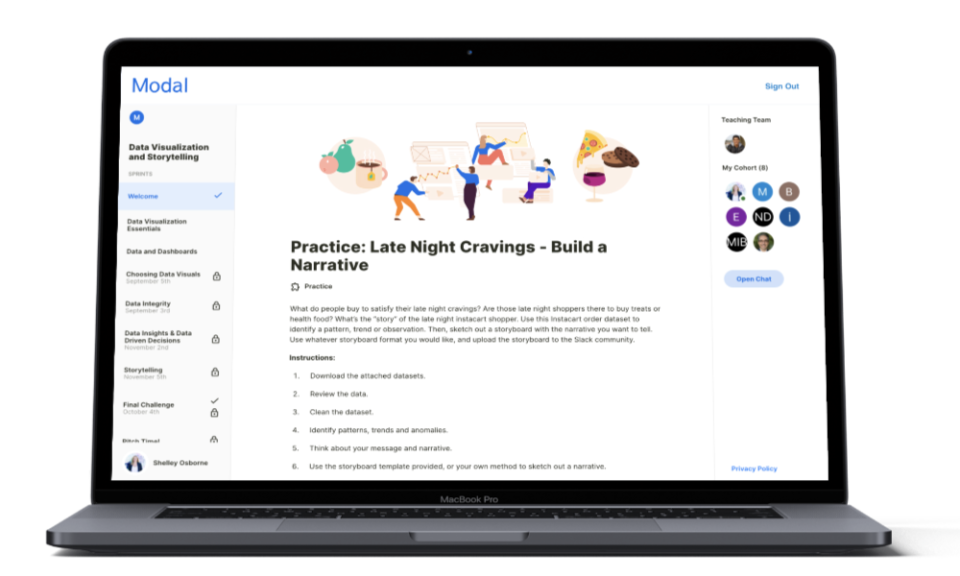Modal raises $25M to train corporate workers on data and AI
A few years ago, Darren Shimkus, ex-president of Udemy, had a conversation with Dennis Yang about skills building.
Shimkus was of the belief that building skills in the corporate sector was a difficult, but not intractable, challenge -- one that could perhaps be solved with the right technology. He brought it up to Yang, who had been Udemy's CEO.
"At Udemy, Yang and I solved the 'access' problem to learning -- anyone at any company can find great video content on the skills they want to pick up," Shimkus told TechCrunch. "But it turns out that solving access to video isn’t enough on its own."
One thing led to another, and soon, Shimkus and Yang had a new startup on their hands: Modal.
Modal provides personalized technical skills training for a company's staff, offering on-demand coaching and a pedagogical approach that groups users into semi-structured online learning communities.
"Our offering assesses every member of a team, identifies gaps in their skill sets, and creates a custom plan for each team member that minimizes the 'skill risk’ companies face in hitting their strategic goals," Shimkus explained. "We support all kinds of goals -- modernization efforts, digital transformation and even training new employees from an acquisition."
The upskilling market is a crowded space, occupied by startups like GrowthSpace, Learnsoft, Pollen, Scaler, Workera and others. So how does Modal plan to make a splash?
First, Shimkus says, by honing in on hot trends: data and AI. Modal's initial set of e-learning courses focus exclusively on these, which seems like a wise strategic choice given today's market.
"The rise of AI is bringing more visibility to data teams than ever before," Shimkus said. "Expectations are through the roof, and many teams are realizing they need to rapidly develop their AI capabilities, broad technical acumen and even the business skills of their teams."

Image Credits: Modal
Modal's second advantage is its emphasis on real-world application, asserts Shimkus. As learners make their way through Modal's courses, the coach with which they're paired helps contextualize and assist with key concepts, Shimkus says.
"From the perspective of the learner, our inclusion of applied practice and coaching really set us apart from traditional e-learning platforms," Shimkus continued. "We think our direct competitors are relatively few."
It seems to be an effective sales pitch. Modal, which only charges companies when a staffer completes a course, has over 100 clients at present, with the majority coming from the Fortune 1000, per Shimkus.
Modal recently raised $25 million in a funding round led by Left Lane Capital, bringing its total raised to $32 million. Now it plans to grow its team to "support incoming demand and expand Modal's offering to organizations worldwide."
"We’ve been fortunate that the rise of generative AI has driven a critical need for upskilling in companies -- no one can afford to miss out on transforming their teams and businesses," Shimkus said. "It’s hard in today’s ever-changing workplace landscape to predict what your teams need, meaning most leaders don’t have a reliable way to plan for and improve their team’s skills. Modal is built for this scenario."
